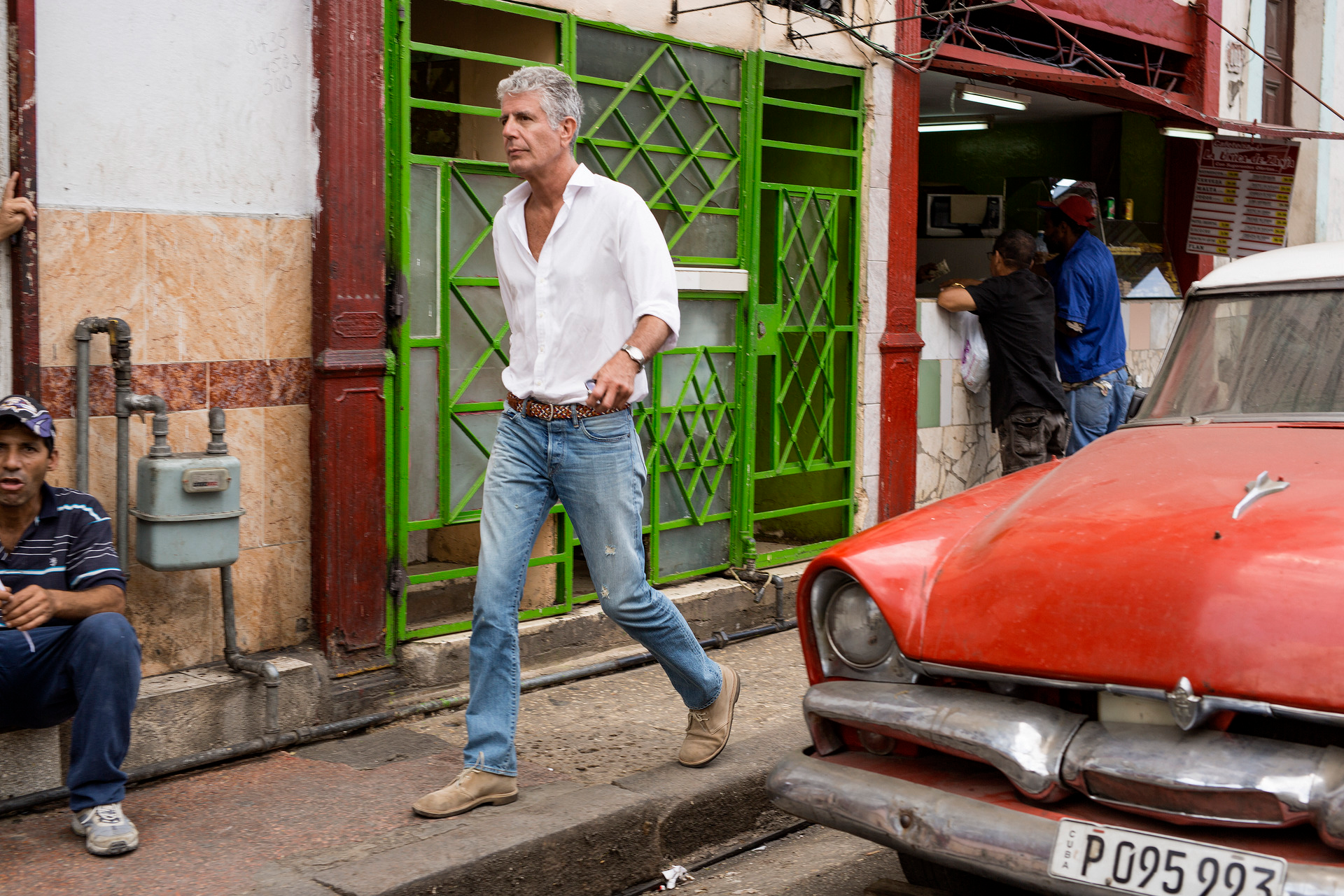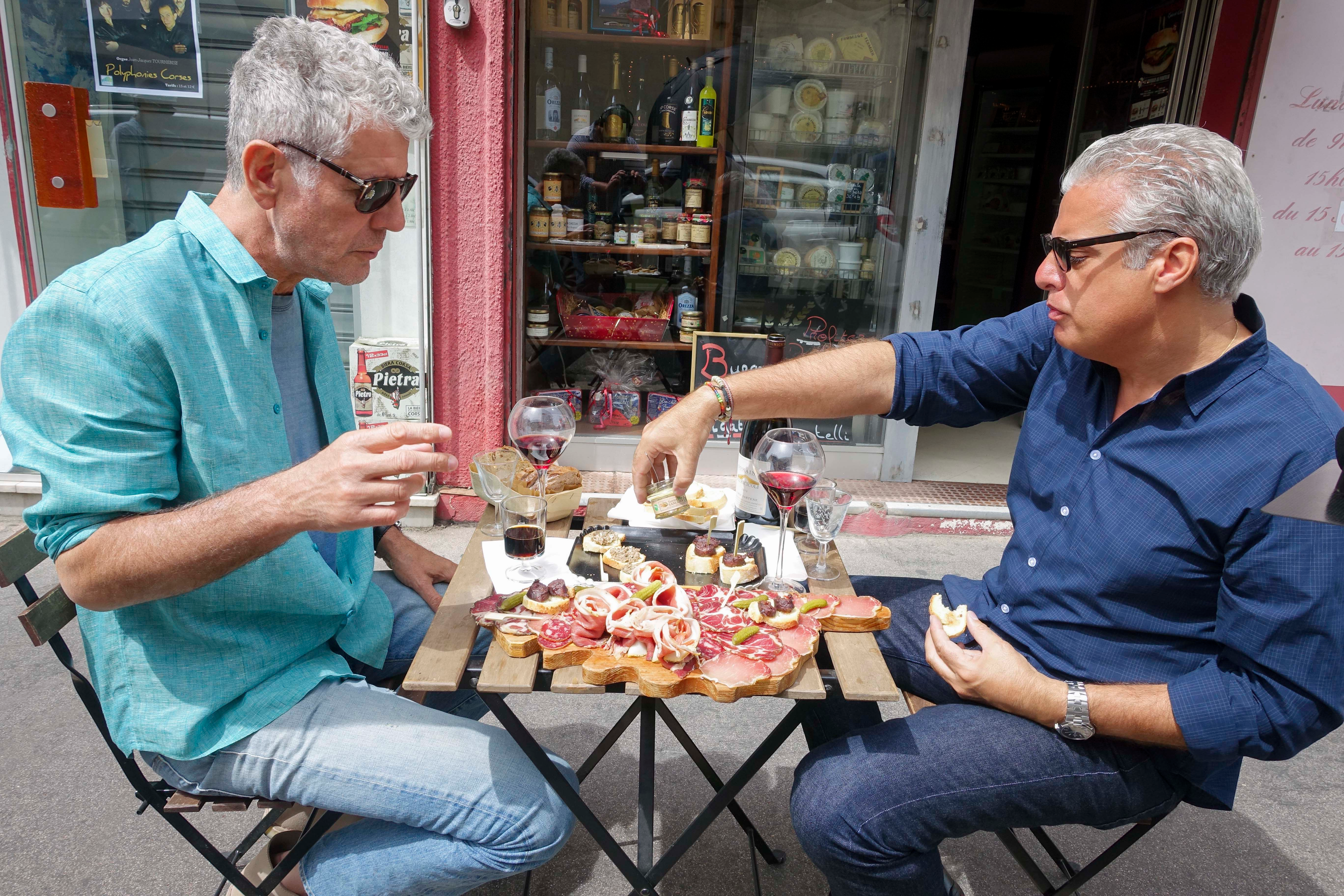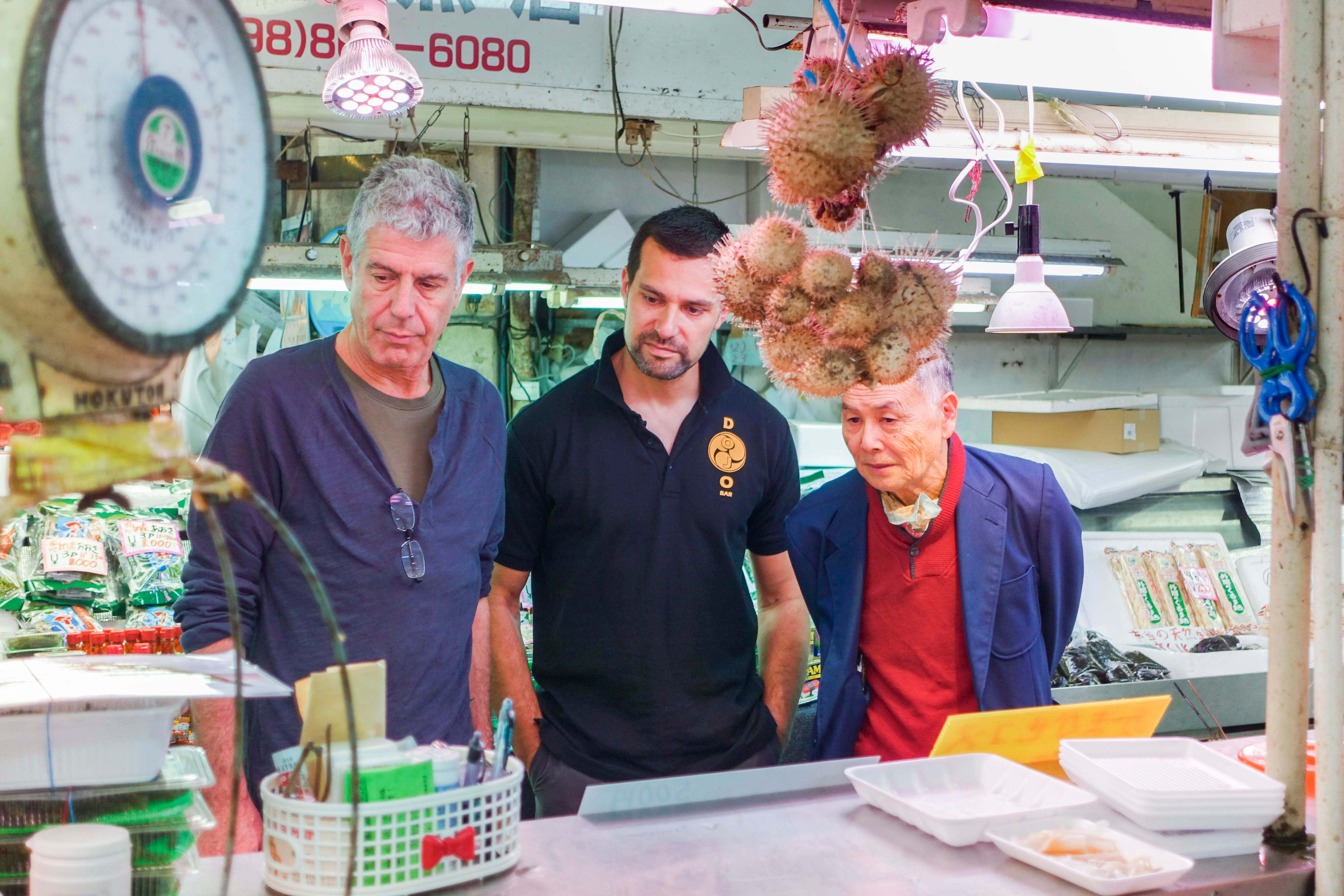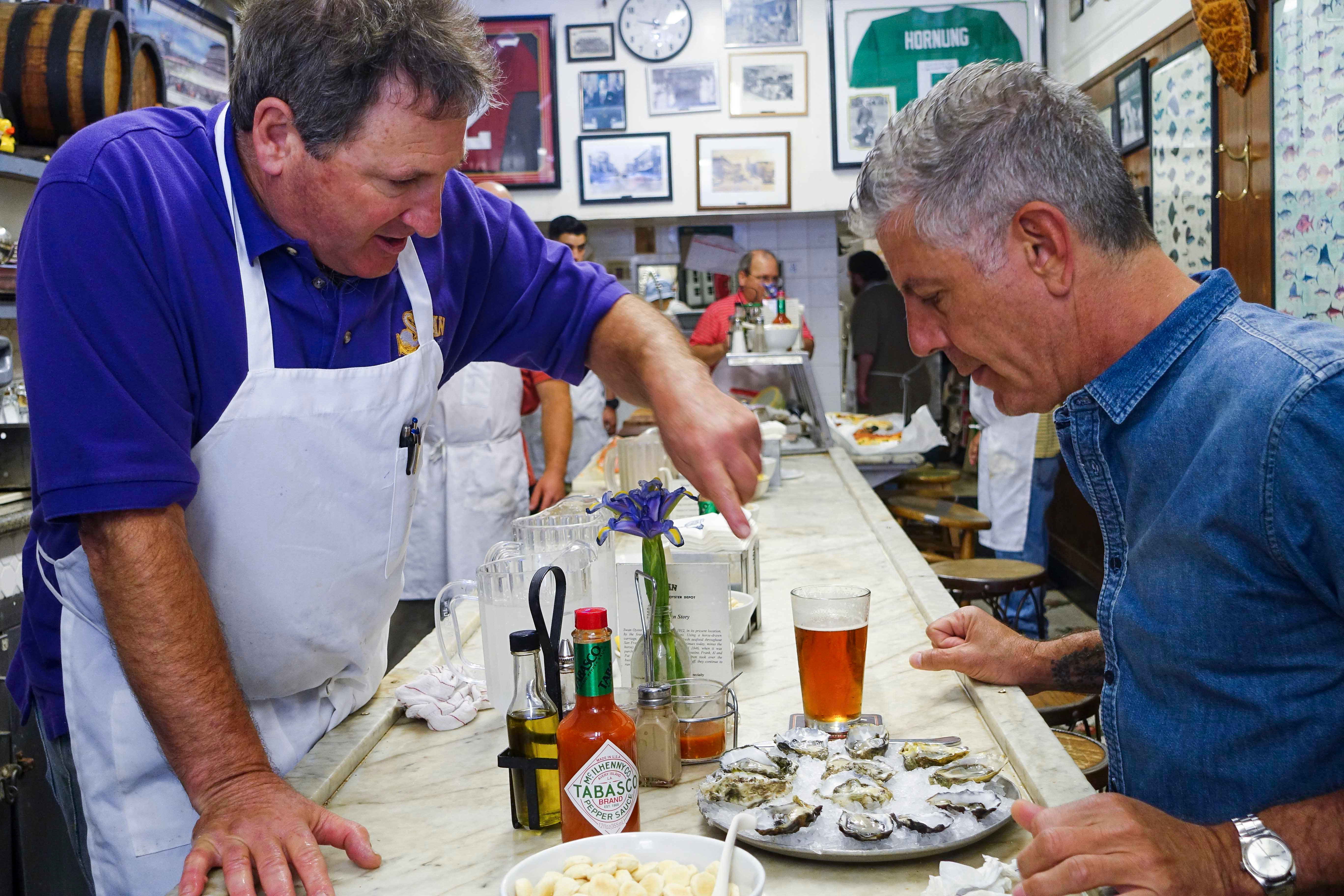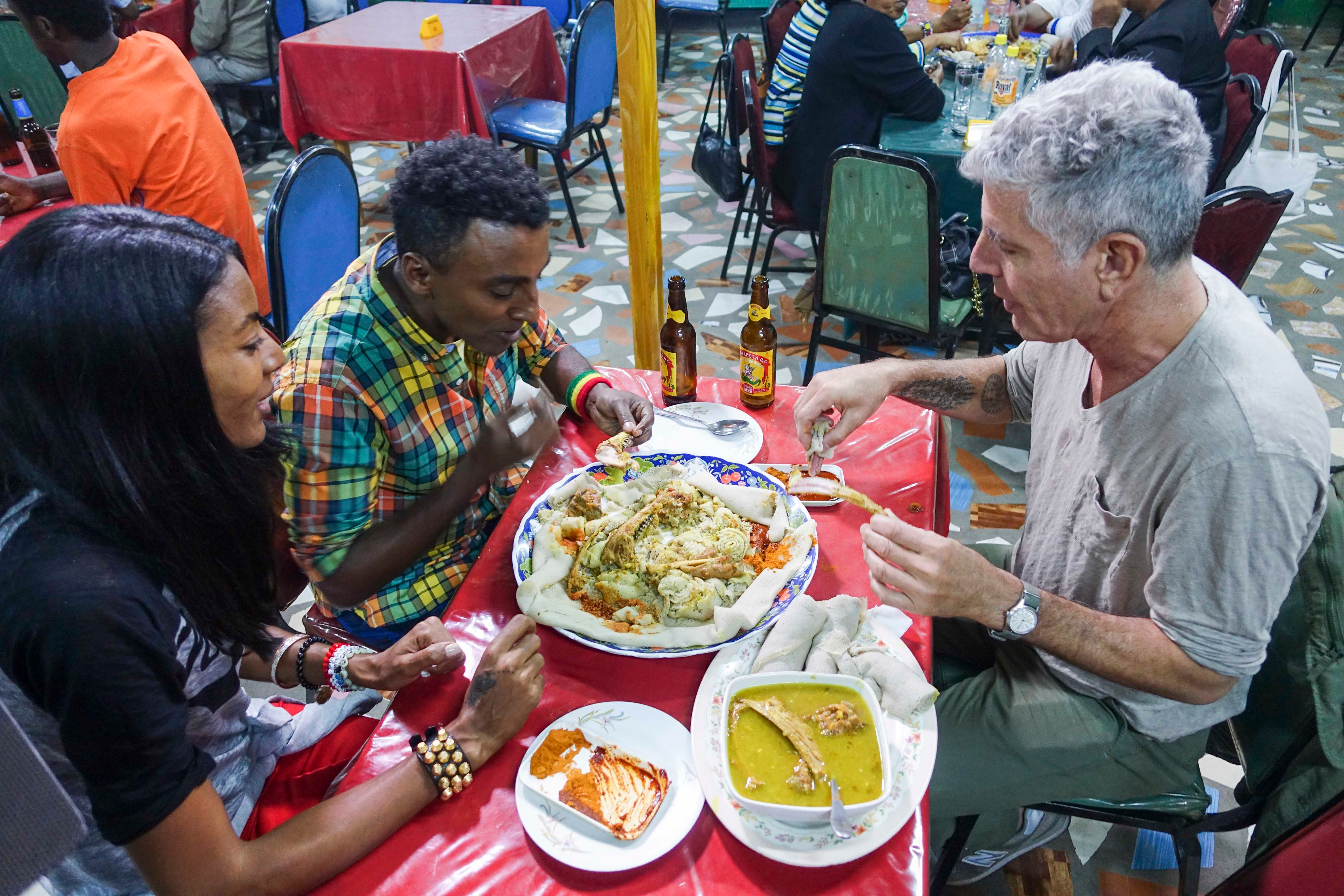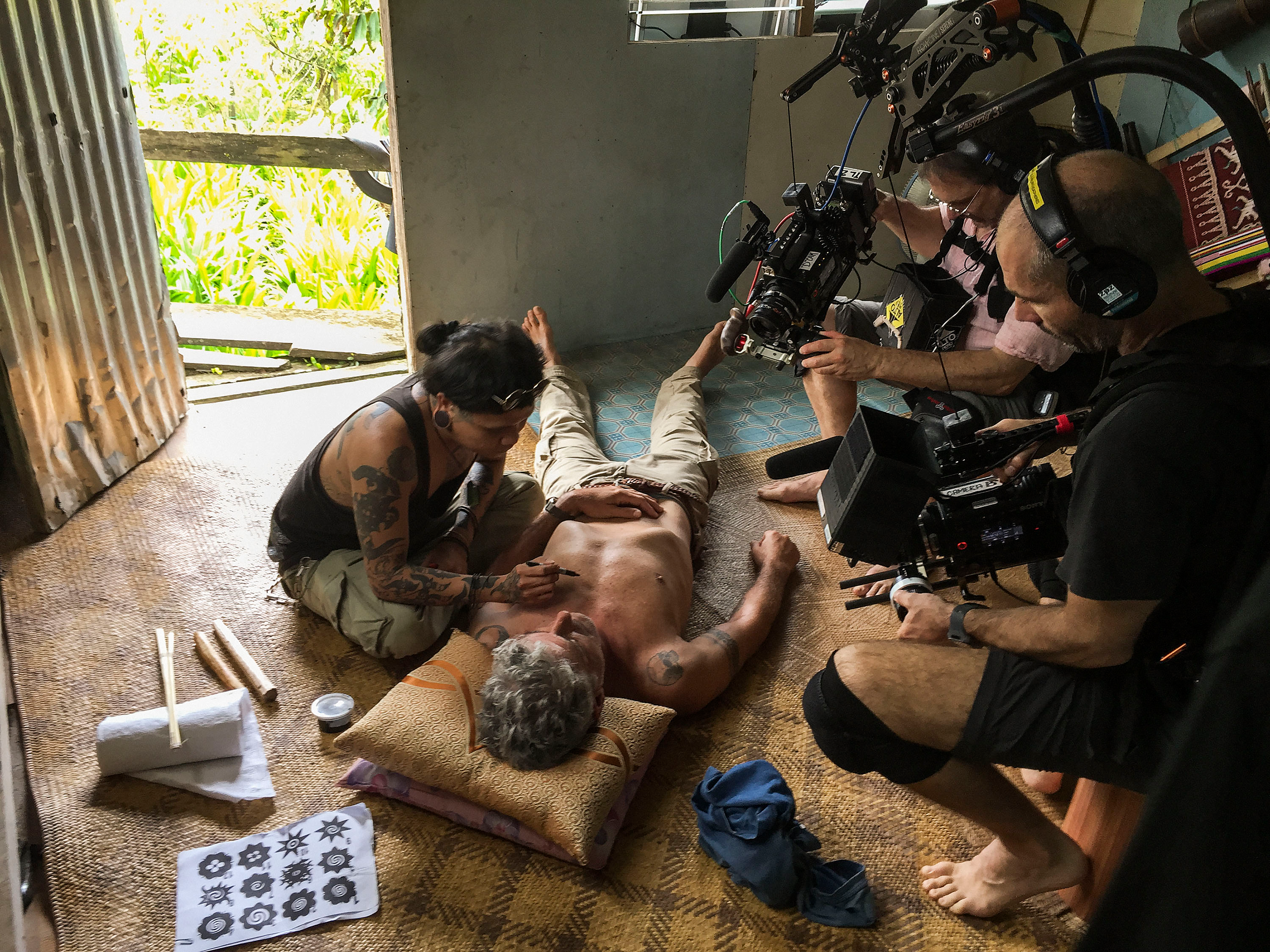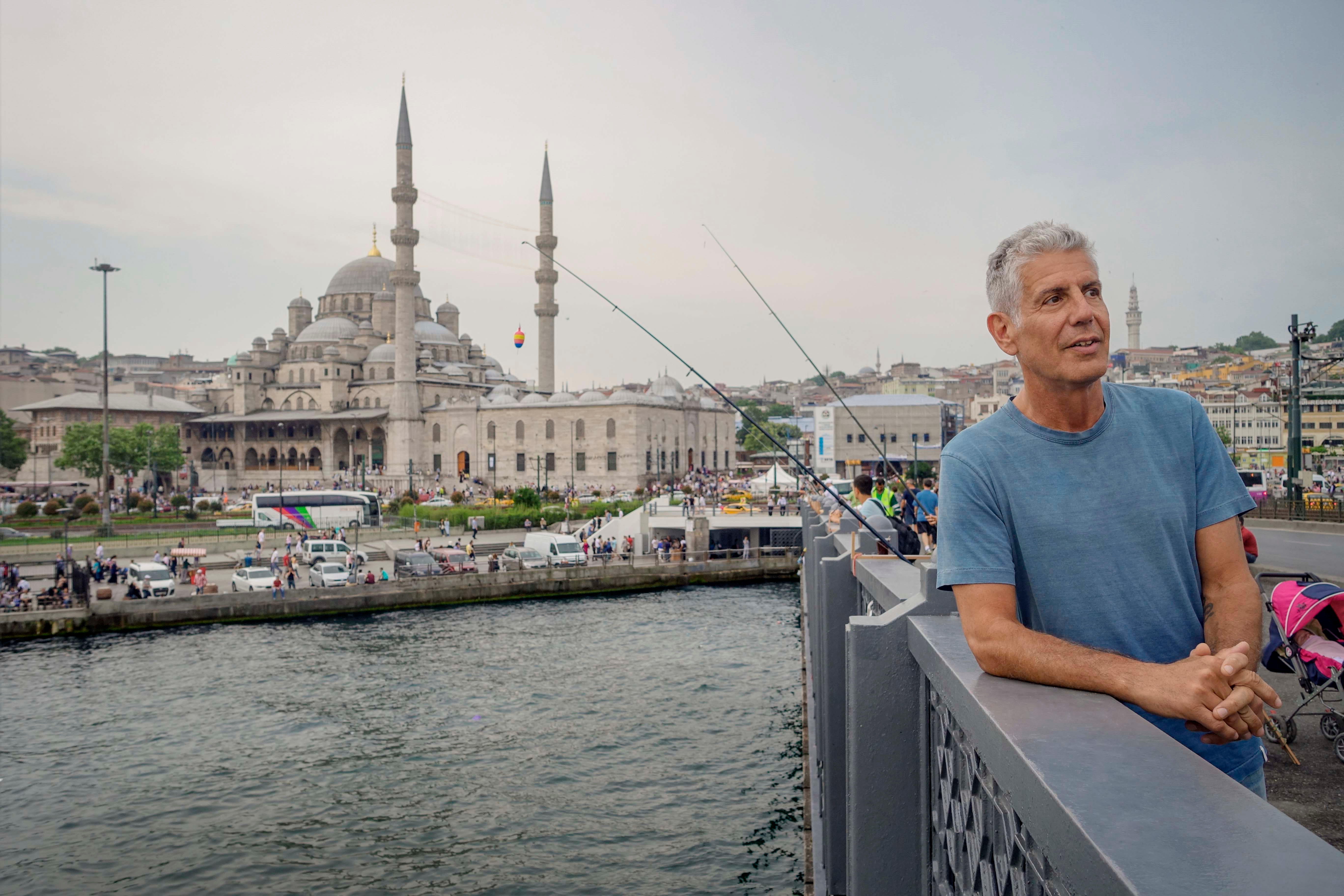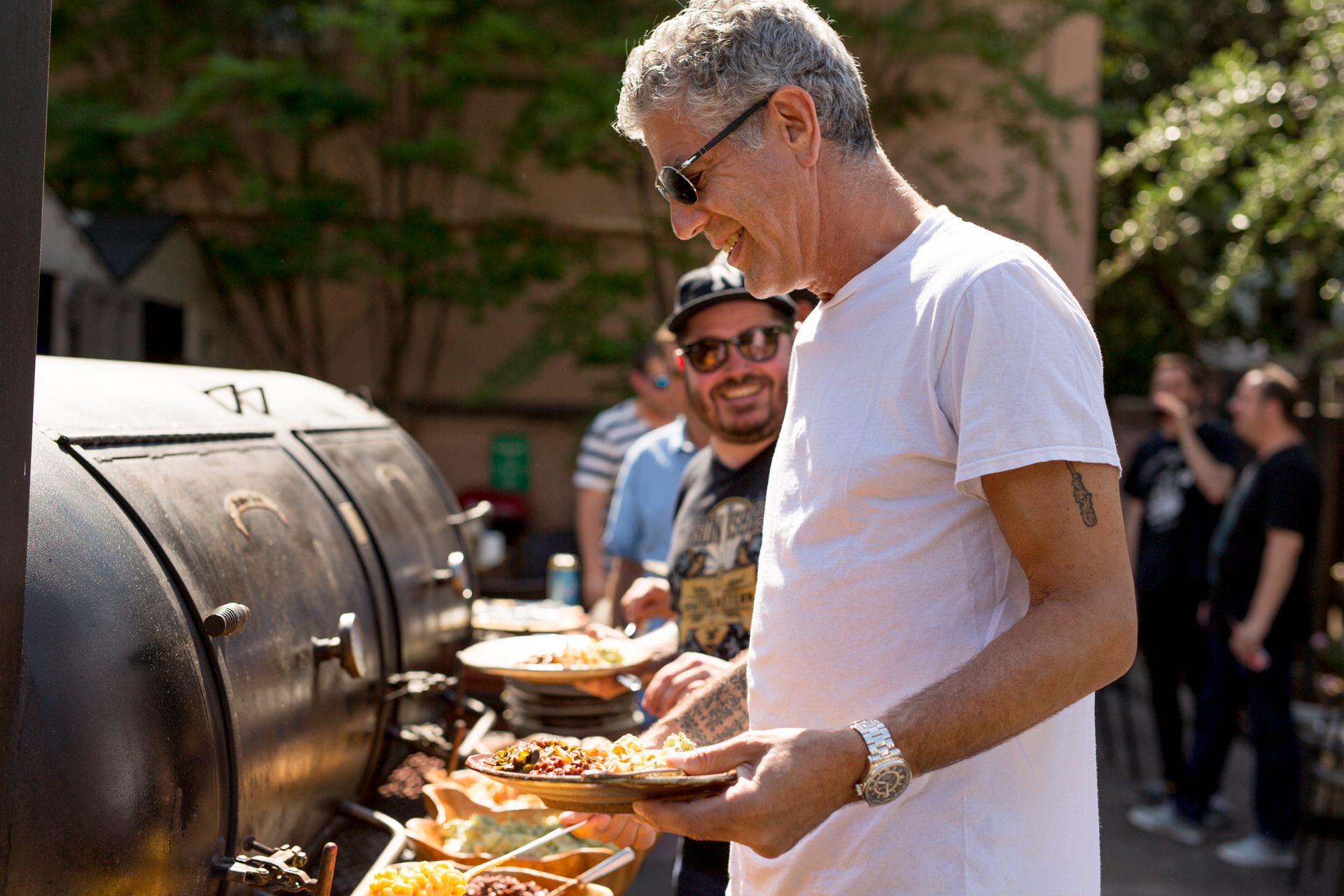Parts Unknown, Season 6: Retracing Steps
We may receive a commission on purchases made from links.
There are a lot of unknown parts in this season of Parts Unknown. Ripert meets an unexplored corner of France. Bourdain sees Cuba at a turning point. And a South Carolina chef takes our intrepid host to that most exotic of locales, the Waffle House.
Episode 1: Cuba
The itinerary: "Cuba" is Parts Unknown in its city-in-transition mode, but the transition is different from what we've seen (or will see) of Detroit, Pittsburgh, and other such locations. In Cuba, change is already happening, but there's an ever-present sense of more change still to come, and the question of what Cuba will become occupies the foreground of many on the conversations we see in this hour.
Looks delicious: Journalist and translator Yusimi Rodriguez is a vegetarian, which means she does not partake of the feast her mother makes for Bourdain, the main event of which is pork marinated with garlic, onion, and citrus.
> Read more about "Cuba" in our list of Parts Unknown's most essential episodes.
Episode 2: Marseille, France
The itinerary: The Ripert episode: a category of Parts Unknown episodes filled with nothing but winners. The two best-in-class are still to come, but "Marseilles, France" is as engaging and playful as one could want. Bourdain, somehow, gets to introduce Ripert to a corner of his own country: France's second-largest city, a wonderland of seafood and ocean breezes. As always with the Ripert episodes, it seems as though all concerned had a delightful time filming the thing. Here, for example, a massive cheese course is accompanied by audio of a woman's voice, making sounds one commonly associates with pornography. Yes, you get a sense of the place, and of the people, and even a sense of why Ripert and other French citizens may have never ventured to this neck of the woods, but you also get a cheeky take on food porn, because if you're not having fun, what's the point?
Looks delicious: Le Petit Nice, the three-Michelin star restaurant of French chef legend Gerald Passedat, offers a four-course take on bouillabaisse that's nothing short of dazzling, though it's the fourth course—the porn-sound cheese—that really wows.
Episode 3: Okinawa, Japan
The itinerary: The Parts Unknown team does a delicate dance here. They want to paint Okinawa as a distinctive place, with a personality and a culture all its own—Okinawan, not Japanese. They love pork. They have their own styles of karate and sumo (and not just the bull sumo). It's a place, Bourdain tells us, that's a little more relaxed, even chill. It's also home to 30,000 American troops. The Okinawan people suffered greatly in the second World War: More people died in the Battle Of Okinawa than in the bombings of Hiroshima and Nagasaki, and Masahide Ota, a former governor of the island, tells Bourdain that Japanese soldiers executed as spies any Okinawans who did not speak Japanese. How to reconcile the righteous anger, the eager fighters, and the easygoing energy of the island? Perhaps you can't. But it's a fascinating portrait all the same.
Looks delicious: At a togyu (bull sumo) fight, the meal taking the place of the American traditional halftime hot dog is a container brimming with yakisoba. Pork belly shows up on the regular, and then there's taco rice, discussed earlier in Parts Unknown's Hawaii episode.
Episode 4: Bay Area
The itinerary: This episode begins, or nearly so, with a Bourdain confession: This whole episode is an excuse to train at Kurt Osiander's jiu jitsu academy. And train he does. (It looks miserable, but he sure seems to love it.) But just because there's an ulterior motive doesn't mean there aren't other reasons to go. Another example of Bourdain's fascination with cities in transition, the episode juxtaposes the host's training and sparring—accompanied by some loud, relentless metal—with locations somewhat less punchy-kicky but no less authentic. While in those spots, Bourdain talks to native San Franciscans about the "rich tech bros" who are pushing out the grime of the city. Nor does he limit himself to that one city, also journeying to Oakland for a conversation about gentrification and authenticity with one of the founders of the Black Panther Party.
Looks delicious: Almost all the food in this episode looks amazing, but Bourdain's eager anticipation for his crab back at Swan Oyster Depot—arguably San Francisco's essential restaurant—makes it pretty clear which is his favorite.
Episode 5: Ethiopia
The itinerary: In later seasons, Bourdain will see Japan through Masa Takayama's eyes, and the French Alps through Eric Ripert's. It's a smart idea—learn about a place by traveling there with someone you know well who is, essentially, returning home—but this is wiser still. Bourdain asks what home means, precisely, early in the episode, and then investigates that idea with chef Marcus Samuelsson and his wife Maya Haile, both of whom were born in Ethiopia but who have not lived there since they were children. Their perspective often shapes the episode. One example: Closeup footage of hands holding and working with berbere, an Ethiopian spice mixture, recall passages written by Samuelsson in his memoir, detailing how his relationship to the flavors of Ethiopia connect him in a way with the mother he can't remember and will never know. These beautiful sequences become a visual metaphor for connection, longing, discovery, and so on. An intensely personal, almost Bourdain-light episode.
Looks delicious: The injera and stews are unsurprisingly appetizing; for something perhaps less familiar, consider tej, the fermented drink made of barley and honey that (slowly) gets Bourdain and company buzzed. Perhaps less advisable: the blend of various alcohols and Sprite they call Turbo.
Programming note: Explore Parts Unknown published an excerpt from Samuelsson's Yes, Chef that makes an excellent (and moving) companion to this episode.
Episode 6: Borneo
The itinerary: Near the beginning of this simultaneously meditative and raucous hour, Bourdain suggests that he might think of his life as "a continuum, a trail of noodles going round and round the world until it comes right back to the same spicy bowl." In this case, he's being somewhat literal. Ten years after first making this trek with No Reservations, Bourdain returns to Borneo to fulfill a promise and accept a long-open invitation. He's changed, he tells us; he wants to know how much this Iban village has too. "I'm retracing my steps in a lot of ways, to see if it still hurts," he tells a traveling companion, and the episode does have a certain subdued, mournful quality. But he also gets a tribal tattoo the old-fashioned way, with "two guys hammering away on [his] sternum with a bamboo club and sharp needles."
Looks delicious: The "best breakfast ever" is apparently Sarawak laksa, a Malaysian noodle dish with chicken, prawns, coconut, chiles, noodles, and a "complex" broth. So good that Bourdain makes a low-key spectacle of himself.
Episode 7: Istanbul
The itinerary: Another episode of Parts Unknown in which the sound editing and score play a vital role, "Istanbul" begins at pivotal moment for the country, as citizens wait for election results to roll in. The quiet clicks and clatter of a room sync with the ticking of a clock, when then gives way to a quiet but energetic electronic composition. Then, a switch: Bourdain and the camera move to the seaside, the tempo slows, the music feels traditional, even ancient. This is one example of the tension present throughout this episode, which even asserts itself in the chronology: It's an episode full of "cautiously hopeful people," as Bourdain describes them in his field notes. He goes on to add, "Subsequent events have failed to deliver on their optimism." Like "London," this is an episode steeped in the tension of the moment, but while other episodes of this type feel connected to the present—as though a straight line can be drawn from then to now—the line in "Istanbul" ends not long after the cameras depart. It's no longer what might be, but what might have been. It's bittersweet, to say the least.
Looks delicious: Pide, a kind of dough-canoe holding cheese, ground meat, and onions, looks even better when Bourdain pours a small ramekin of beaten eggs into it.
Episode 8: Charleston, South Carolina
The itinerary: Bourdain tells chef Sean Brock of Husk that when he did Charleston the first time (for No Reservations), he fucked it up, and has been "taking shit" about it ever since. (The Charleston City Paper: "The dude seemed wholly uncomfortable. What was it about Southerners that put him on edge? Perhaps the blessing before the meal at Jestine's?") This is at attempt to course-correct, to right a wrong, to "get" Charleston. The adventure begins, as it must, at Waffle House, with a meal that upstages even an appearance by Bill Murray.
Looks delicious: We'll be getting into that Waffle House meal elsewhere, so for now let's focus on the oyster pie, shrimp and grits, sucking pig, and very good bourbon at Husk.
> Read more about "Charleston, South Carolina" in our list of Parts Unknown's most essential episodes.
